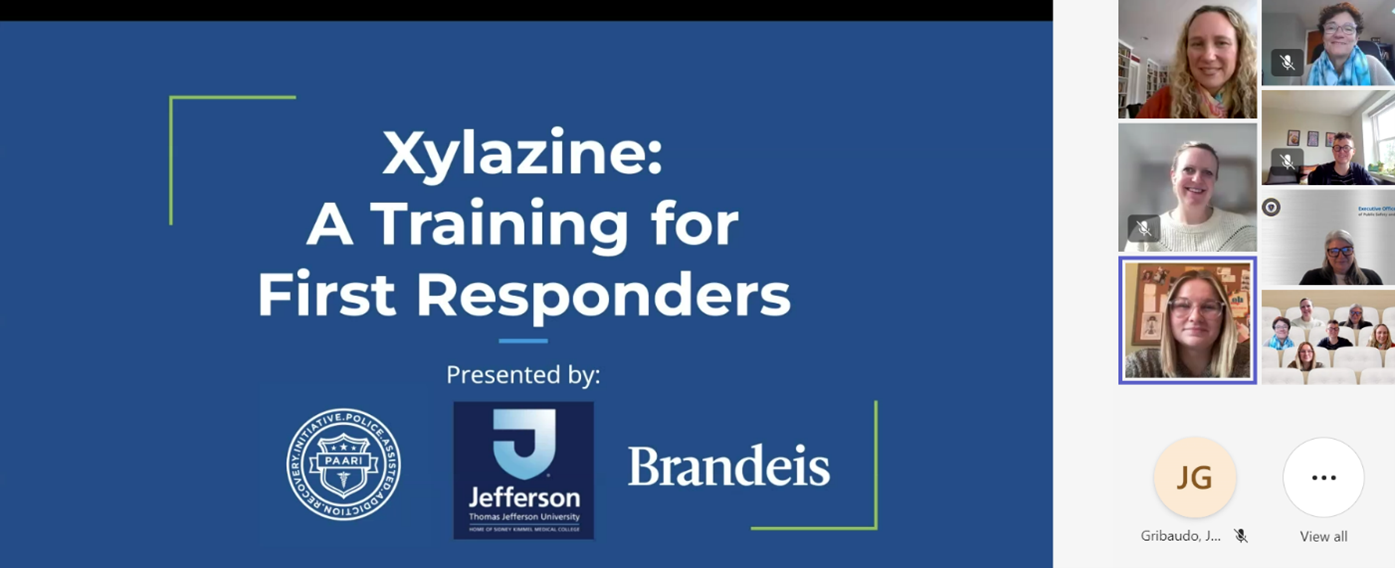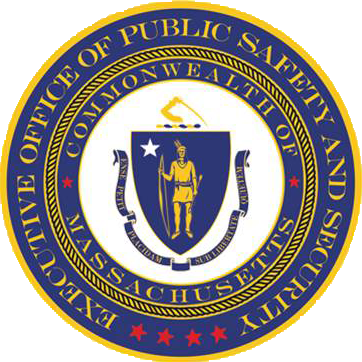- Executive Office of Public Safety and Security
Media Contact
Elaine Driscoll, Director of Communications and Policy

Boston — As part of its commitment to delivering high-quality training around emerging public safety topics, the Executive Office of Public Safety and Security (EOPSS) recently hosted a free online seminar to educate first responders about the dangers of Xylazine, a powerful animal sedative also known as “TRANQ.” In 2023, the U.S. Drug Enforcement Administration issued a public safety alert warning about a national increase in the trafficking of fentanyl mixed with Xylazine.
EOPSS, in coordination with the Police Assisted Addiction and Recovery Initiative (PAARI), Brandeis University Health Services, and Thomas Jefferson University, convened more than 400 participants for the educational session, which raised awareness of the present-day danger and equipped first responders with best practices.
“EOPSS is deeply committed to providing specialized training to equip state and local first responders with the most up-to-date information on emerging public safety topics,” said Public Safety and Security Secretary Terrence Reidy. “I appreciate the experts at PAARI, Brandeis, and Thomas Jefferson Universities who shared their expertise and offered best practices to support our law enforcement with life-saving strategies to combat this deadly drug.”
According to statistics from the Massachusetts Drug Supply Data Stream (MADDS), xylazine was detected in 28% of 263 opioid samples tested in 2022. The Massachusetts Bureau of Substance Addiction Services and the Bureau of Health Professions Licensure data also indicates that xylazine was present in 5% of opioid-overdose-related deaths.
The training session was led by Zoe Grover-Scicchitano, Executive Director, and Liz Leingang, Project Manager, both from the Police Assisted Addiction and Recovery Initiative. They were joined by Dr. Mary Jo Larson, Researcher, Brandeis University Health Services, Dr. Traci Green, Professor and Director of the Opioid Policy Research Collaborative at Brandeis University, and Dr. Megan Reed, Research Assistant Professor, Thomas Jefferson University.
Training topics included:
- Effects of xylazine on people and the underlying associated health issues
- How to identify wounds caused by xylazine and the basic practices to treat such wounds
- Ways to conduct outreach to people who use drugs and generate awareness about the dangers of xylazine
- Strategies for community outreach and steps to activate a community-wide response
"The Police Assisted Addiction and Recovery Initiative is happy to present on the emerging threat of xylazine to first responders in Massachusetts. We've been excited to work with Thomas Jefferson University and Brandeis University with funding from Combating Overdose through Community-Level Intervention (COCLI) initiative on this project,” said PAARI Executive Director Zoe Grover-Scicchitano. “First responders are on the frontlines with this emerging threat and making sure they are armed with information is the first step to addressing it.”
Xylazine is not approved for human use. It can cause unresponsiveness, low blood sugar, low blood pressure, slowed heart rate, and reduced breathing. Xylazine can also cause necrosis at injection sites and skin ulcerations.
While the substance is colorless and odorless when mixed with other drugs, training participants learned best practices to identify the effects of xylazine on people, respond to medical emergencies, perform outreach on this topic to those who use drugs and the community at-large.
Even though naloxone may not reserve the effects of xylazine, first responders were advised during the online training session to always administer naloxone in possible overdoses. Using naloxone can help by reversing the life-threatening respiratory issues caused by the possible underlying opioid.
###
